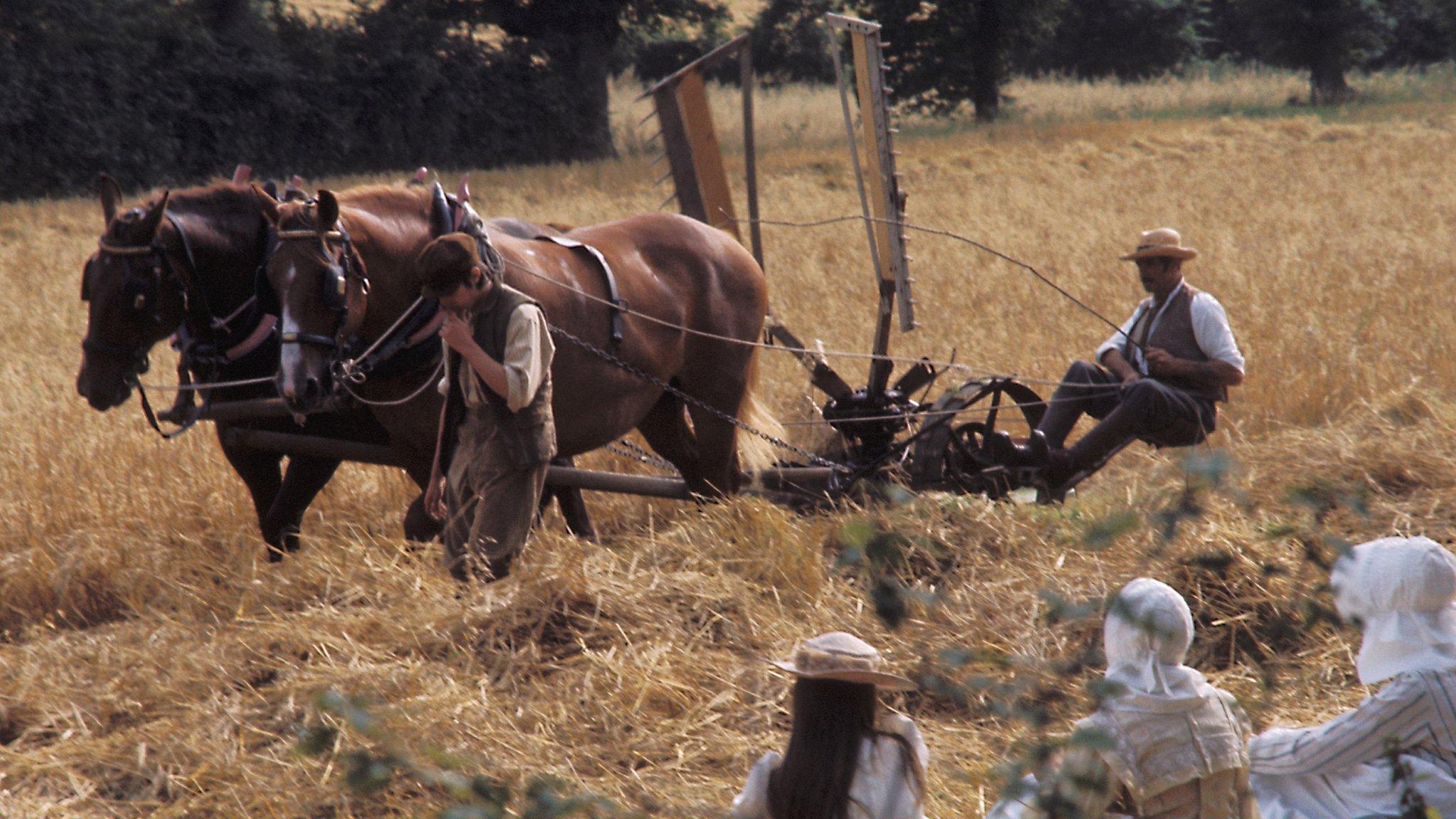Suffolk nature writer Ronald Blythe dies aged 100
- Published
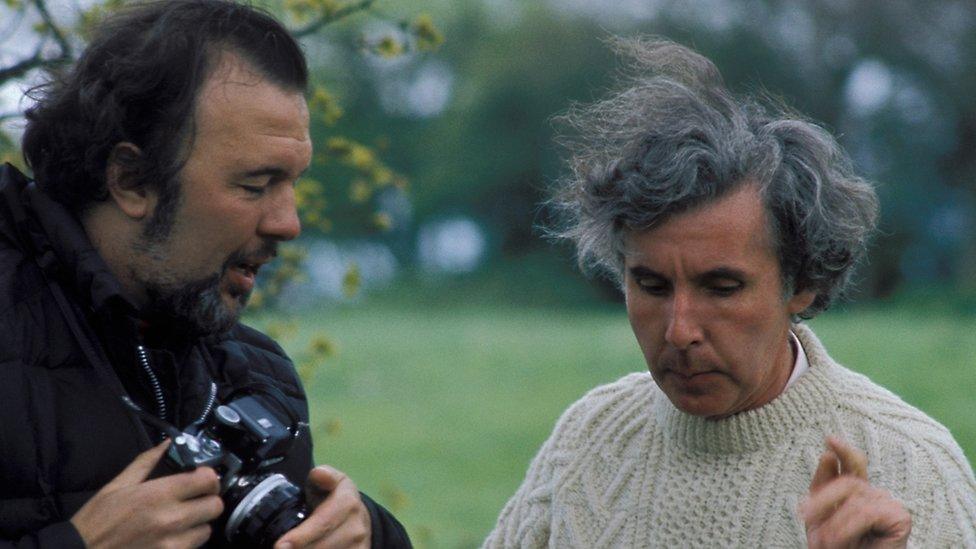
Director Peter Hall filmed Akenfield with the help of Blythe and cast many local residents, including a blacksmith
Ronald Blythe CBE, who chronicled the English countryside and a way of life that was rapidly disappearing, has died at the age of 100.
The writer grew up in poverty near Sudbury, Suffolk, and educated himself by borrowing library books.
His best known work, Akenfield, is an account of village life in Suffolk from the 1890s and 1960s.
"He had this earthy Suffolk philosophy; he was immensely wise but he wore it so lightly," said his friend Ian Collins.
"Being with Ronnie Blythe in one of his books is like being on a magic carpet - the exhilaration of being alive, and of nature and the world and what people have done, all the good things."
Blythe wrote more than 30 books. He was appointed CBE in the Queen's Birthday Honours in 2017, external for services to literature.
Sir Peter Hall's film interpretation of Akenfield used local people, was given a general cinema release in 1975, and its producers said it attracted 14 million viewers when it was shown on television that year.
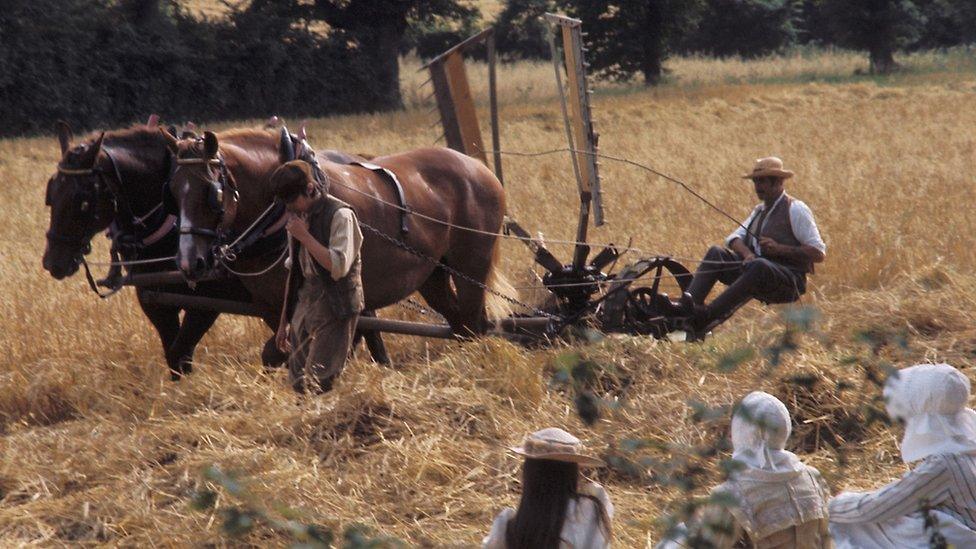
The film adaptation of Akenfield featured a harvest scene as it would have been in 1910
Blythe, the eldest of six children, came from a long line of shepherds and farm workers and left school at 14, although he was awarded an honorary degree by the University of Suffolk in 2015, alongside singer Ed Sheeran.
"He listened and looked around him and read - he was a product of the public library system," explained Mr Collins, who was also Blythe's literary executor and one of his carers.
"He didn't dwell on his own difficulties - he celebrated life, but his achievement was far greater than most people realise."
Allow X content?
This article contains content provided by X. We ask for your permission before anything is loaded, as they may be using cookies and other technologies. You may want to read X’s cookie policy, external and privacy policy, external before accepting. To view this content choose ‘accept and continue’.
Deeply rooted in the places he wrote about, he lived most of his life within 10 miles of his birthplace and observed the countryside around him.
Akenfield, published in 1969, looked at the immense changes in the Suffolk countryside over 70 years.
The imaginary name depicted a real place - he interviewed people in the area where he grew up, edited their memories and observations to create a picture of English rural life.
He spoke to BBC Radio Suffolk in 2015 on the 40th anniversary of the book's film adaptation, which was shot in Suffolk and featured local people.
"When I wrote it, I had no way idea that that way of life was disappearing," he said.
"It just accidentally touched on that moment when things do change."
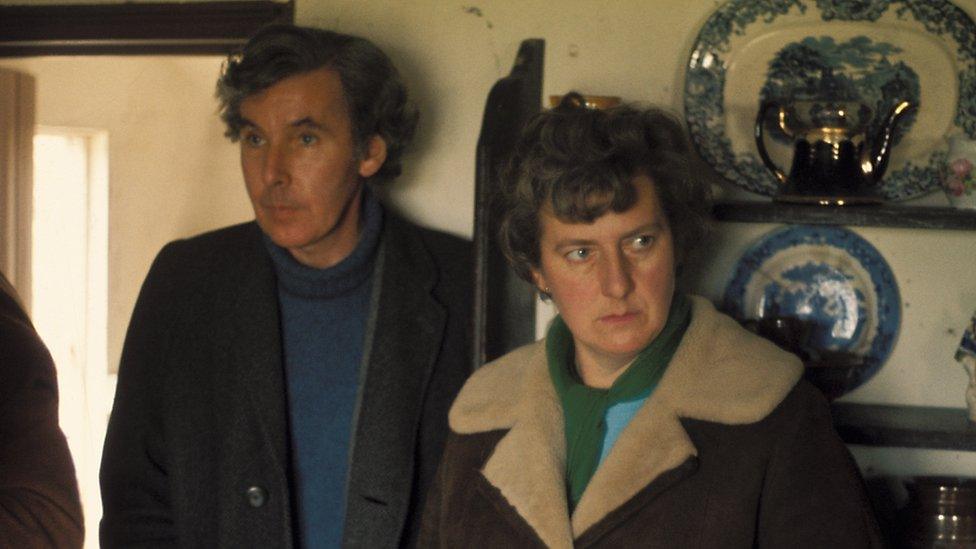
Ronald Blythe picture on the set of Akenfield with Peggy Cole - the Suffolk writer and BBC Radio Suffolk contributor who also appeared in the film
Mr Collins said Blythe was not nostalgic about the past, and was aware farm workers had worked themselves to death in the Great Depression.
"He knew the hardship of farmers in the 1920s and 30s but he knew it was also incredibly beautiful; there was an amazing wild profusion of yellowhammers, nightingales, linnets, that are a rare sight today."
The View in Winter, published when he was in his 50s, gave his positive take on old age.
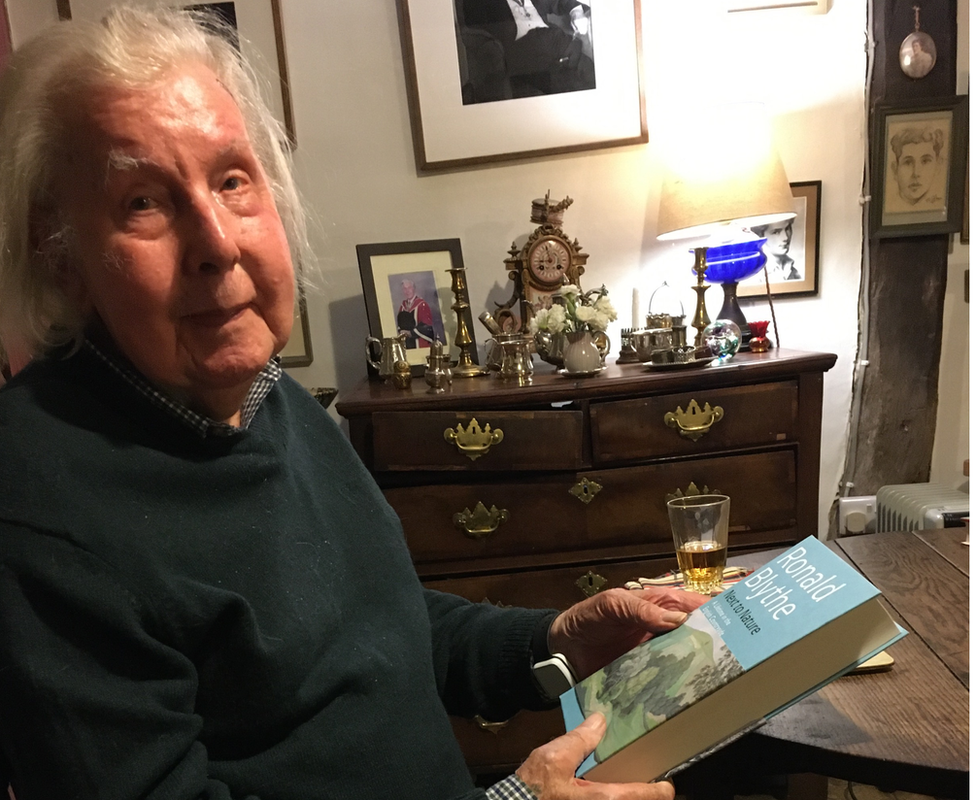
Ronald Blythe was a fellow of the Royal Society of Literature and a recipient of its Benson Medal for lifetime achievement
"He thought great age was a gift to be valued; he hated the idea of care homes and thought, if possible, people should stay at home, and he did just that," said Mr Collins.
"He died at home, on Saturday, in bed, very peacefully, surrounded by love.
"He was so witty and so warm and every youthful; he liked the company of young people because he stayed young himself.
"He had great appreciation and endless curiosity about everything in life and also dying.
"He showed us how to live."

Find BBC News: East of England on Facebook, external, Instagram, external and Twitter, external. If you have a story suggestion email eastofenglandnews@bbc.co.uk, external
Related topics
- Published26 January 2015
